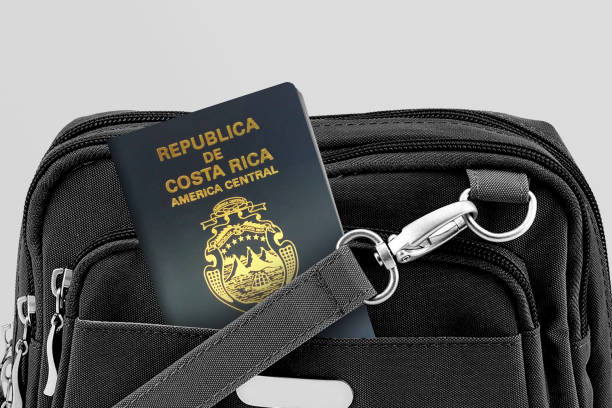
Costa Rica is a magnificent nation in Central America that is renowned for its breathtaking scenery, vibrant culture, and warm inhabitants. To ensure a pleasant and hassle-free vacation, knowing the passport requirements is crucial if you’re planning to visit Costa Rica.
Costa Rica Passport Rules
Below are the ore Costa Rica passport rules you should know before obtaining your Costa Rica Passport.
Validity of Passport
The first thing to remember is that your passport must be valid for at least six more months than the length of time you plan to spend in Costa Rica. Your passport must be valid for at least six and a half months after your arrival if you intend to stay in the nation for two weeks.
Criteria for entry
Visitors to Costa Rica must have a current passport and a ticket for their next destination or a return flight. You must prove that you will depart the nation before your visa or entrance stamp expires. You could not be allowed access if you don’t have a return or onward ticket.
Visa prerequisites
Most North America and Europe travelers can enter Costa Rica without a visa because of the country’s relatively lax visa regulations. There are a few exceptions, so it’s crucial to confirm your eligibility for a visa before you travel.
Brazilian, Indian, and Russian nationals must have a visa in order to enter Costa Rica. Yet many other nationals, including those from the US, Canada, and UK, can stay in Costa Rica for up to 90 days without a visa.
You must submit an application for an extension of stay at the neighborhood immigration office if you want to stay in Costa Rica for more than 90 days. The extension is good for up to 90 days and has a three-renewal limit, potentially 270 days.
It’s vital to keep in mind that the immigration officer has the last word on whether or not you can enter the country and may want further documentation or information from you. It’s always a good idea to organize and have all the required paperwork.
Exit Conditions
You may be required to pay an exit tax of $29 while departing Costa Rica. The majority of the time, this tax is already included in your airline ticket, but if it isn’t, you’ll need to pay it at the airport before you depart. Since credit cards are not always accepted, it is crucial to have cash on hand when paying the tax.
YOU WILL ALSO LIKE: What to Know When Obtaining Dubai Passport
Passport stamps
They will place a passport stamp stating your arrival date and the duration of your stay in your passport when you enter Costa Rica. Keep this stamp in your passport at all times because you could need it when you leave the country.
You must notify the local police and the closest embassy or consulate of your home country if your passport is lost or stolen while you are in Costa Rica. Before leaving the nation, you might also need to apply for a new passport or other travel document.
Traveling with kids
It’s crucial to understand that children, including infants, require their own passports if you are traveling with them. The passport must still be valid at least six months after the planned departure date from Costa Rica.
A notarized letter from the other parent approving the child’s travel is required if only one parent is taking the youngster on the trip. If neither parent is accompanying the child on the trip, a notarized letter from each parent approving the trip is required, along with a copy of each parent’s passport.
YOU WILL ALSO LIKE: Dubai Visa-free Country List
Requirements to enter the country
To enter Costa Rica as a tourist, you must adhere to the following requirements:
-
Passport or Travel Document: Ensure you have a valid passport or travel document that can be read electronically, in accordance with the guidelines set by the International Civil Aviation Organization (ICAO). Your passport must be valid for the duration specified by these guidelines.
-
Visa Requirements: Check whether you require a visa to enter Costa Rica based on the guidelines. If necessary, ensure you obtain the appropriate visa before your travel.
-
Proof of Economic Means: Provide proof of economic means, demonstrating a minimum of US$100.00 per month or partial month of legal stay in the country. This may include cash, credit cards, or other financial documentation.
-
Return Ticket or Onward Travel Plan: Present either a return ticket to your country of origin or a plan for onward travel that includes your next destination after Costa Rica.
-
No Impediment to Entry: Ensure you have no legal impediments preventing you from entering Costa Rican territory, such as outstanding warrants or immigration issues.
Additionally, during your visit, you must comply with any health protocols established by private companies when participating in tourism activities in Costa Rica.
It’s important to carefully review these requirements and ensure you have all necessary documentation before traveling to Costa Rica.
MAXIMUM STAY
Conclusion
In conclusion, it’s crucial to make sure your passport is valid for at least six months beyond the length of your intended stay and that you have a return or onward ticket if you are planning to travel to Costa Rica. Ensure you always go through these Costa Rica passport rules before going to Costa Rica.
Leave a Reply